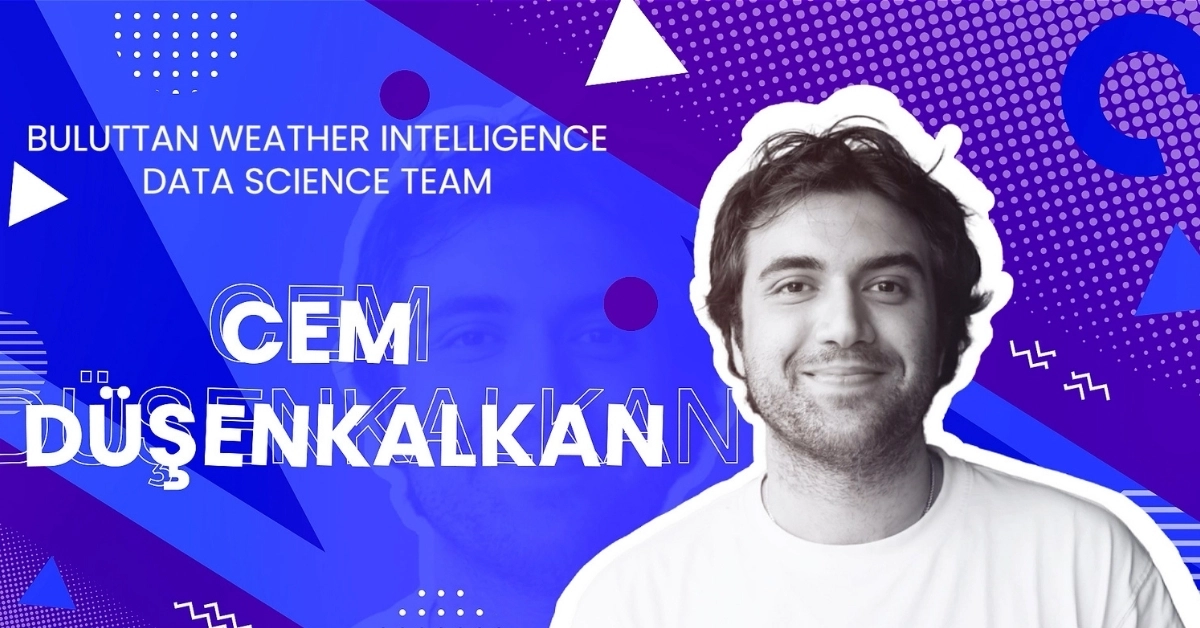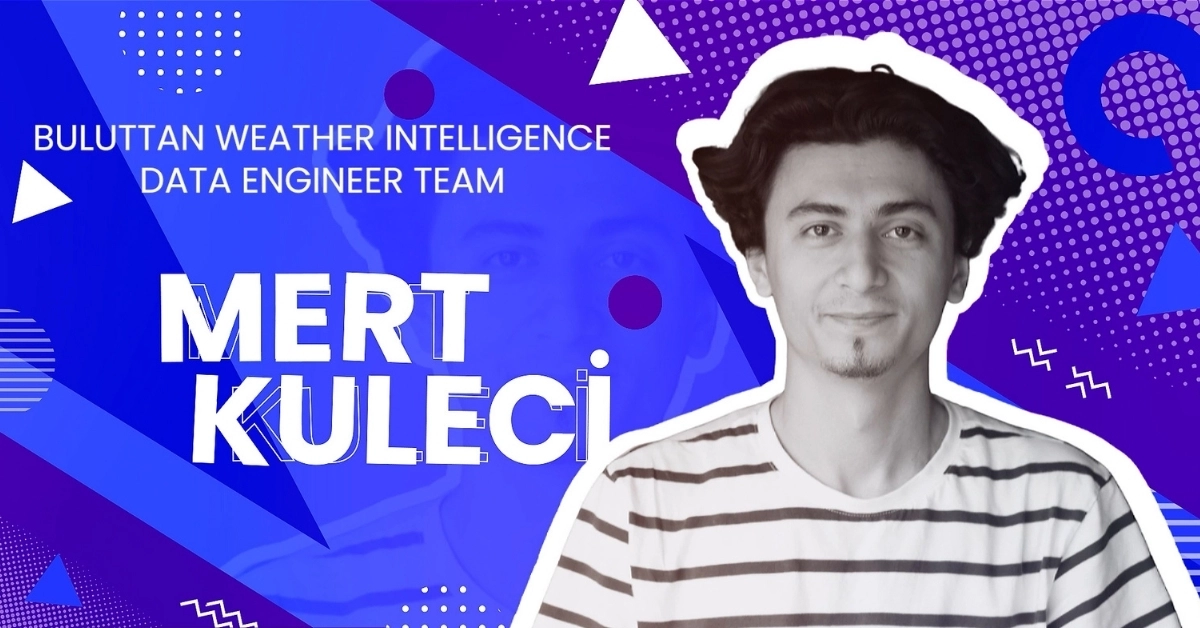In this episode of Buluttan Small Talks, we are with Melis Kılıç, a data scientist. Let's hear from Melis herself about what she did before Buluttan, her roles and experiences at Buluttan, and her thoughts on the future of Weather Intelligence.
Gökmen: Melis, hello.
Melis: Hello.
Gökmen: Welcome, how are you?
Melis: I'm good, how about you, Gökmen?
Gökmen: I'm also doing very well. Today, we'll have a pleasant short conversation with you. Let's start with who Melis is.
Melis: I'm actually a graduate of Boğaziçi University's business program, so I don't come from a technical background, but I can say I'm good with numbers. I initially worked in digital marketing, specifically in the e-commerce sector. Later, I transitioned to data science and worked in e-commerce for 2 years. After that, I worked as a data scientist in a mobile gaming company. Currently, I've been working at Buluttan for 7 months. At Buluttan, I'm involved in the prediction of wind and solar energy production. I handle the machine learning models.
Gökmen: So, starting from Boğaziçi University business, continuing with digital marketing, then transitioning to data science, how did this journey intersect with weather intelligence and Buluttan? I remember that process, starting from the beginning of the year; it was actually our workflow back then. I remember our meetings, but I'd like to hear how it happened from your perspective, and looking forward, what excites you about Buluttan and weather intelligence. Let's talk a bit about those.
Melis: Actually, I got to know Buluttan during my job search, and I wanted to be in a company where I could make an impact. Startups are ideal for that, and after meeting Buluttan, I realized that I could create business value as a data scientist, and that attracted me. Now, I can see that we're really doing that. In the energy sector, better predictions directly bring better business value, and we can see the output of our work directly. It's nice in that sense. The energy sector was very new to me. I got acquainted with meteorology and energy. We're actually working in a quite scientific field, and that's exciting.
Gökmen: By the way, before this, your interest in meteorology and weather intelligence was probably at a citizen level. How do you see it now as you delve into it because a transformation, even a paradigm shift, is happening here? We can say that physical models, dynamic models that have come intensively until now, are now being complemented by statistical models with the increasing depth and diversity of data. Probably, statistical models will gradually have more influence here. I find it very exciting. How do you see it?
Melis: In fact, many sectors are experiencing this change. Many sectors continue to improve themselves with artificial intelligence. The same paradigm shift is happening here. Some companies, for example, try to predict meteorological parameters using similar meteorological methods with pure data science. What I find great at Buluttan is the integration of meteorological knowledge with artificial intelligence, combining those physical models with a hybrid model.
I think this hybrid model works very well. Because when we do machine learning, the quality of the data is important, and the output of those physical models provides us with good data. So, we can make better predictions. We start with a clean slate, so to speak. In that sense, I really like the combination of artificial intelligence with meteorology here.
Gökmen: Of course, no matter how strong the neural network example is, you're only as strong as your meteorological predictions. In fact, you're as strong as your meteorological prediction, and technically, perhaps a bit more technical, if you look at Pearson correlation, it's not easy to do much without knowing the wind speed.
So, how do you see Buluttan? Let me continue from there. Here, we are trying to do something different both as a company culture, as a team, and in terms of vision and industry. What's your perspective on this? How do you feel about it?
Melis: It's a very niche field. We started working in Turkey, but at the same time, it's a very global field. Because we can run the same model that works in Turkey in other places, anywhere in the world. So, in this sense, I think it's very scalable.
I've witnessed Buluttan's process for 7 months, and we are growing rapidly. Both the team and our international colleagues are increasing. Suddenly, we've embarked on the path of becoming a global team, and I can see the development of what we do month by month. So, being part of such a team is exciting for me. Being in such a startup is great.
Gökmen: Now that you mention it, when I think about team members from Canada, the USA, Italy, different parts of Turkey, and recently from India and Saudi Arabia, it's a separate challenge for a company that is 1.5-2 years old to conduct team meetings in English, incorporating different geographies and cultures into diversity and inclusion.
I hope we succeed in that as well, with our faces as bright as meteorology and climate learning. Thank you very much, Melis. What would you like to say? We usually say, "May your weather be good." Or to those listening, to meteorological engineers, to those curious about Buluttan, to those who want to know what is being done here, what would you like to say?
Melis: The team here is always open to learning new things and, at the same time, very open to providing information. Anyone who wants can reach out to us through social media channels or directly to get information.
Gökmen: May your weather be good, and greetings to Burcu behind the scenes!
Melis: Greetings!







